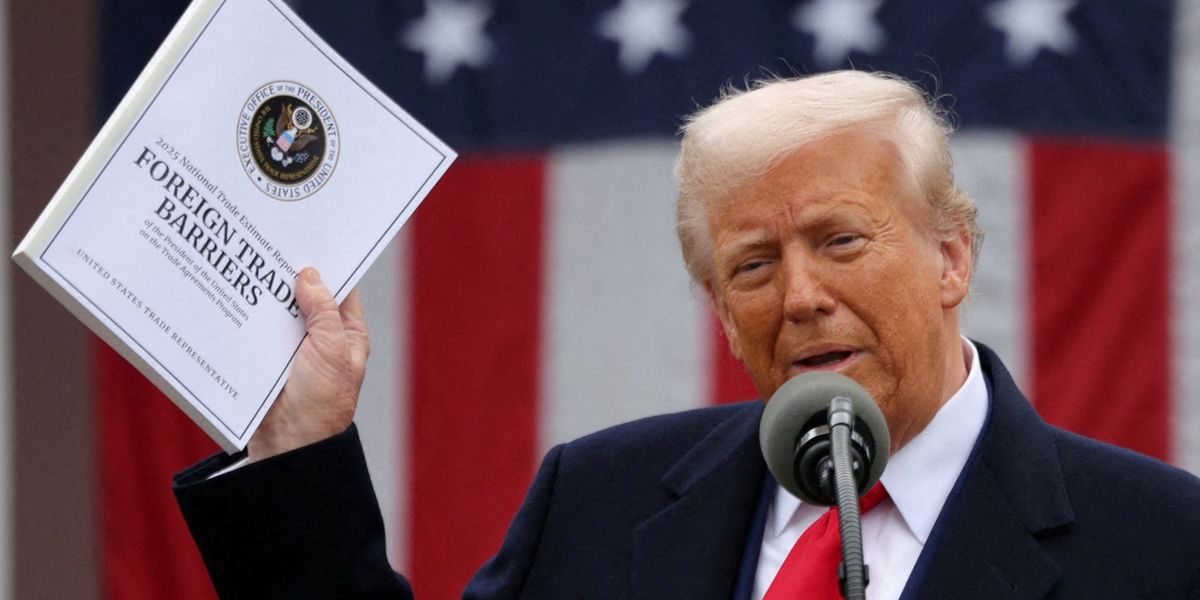Twelve U.S. States File Lawsuit to Block Trump's Tariffs

In a significant legal move, a coalition of twelve U.S. states has come together to file a lawsuit aimed at halting the extensive tariffs imposed by President Donald Trump. This action was taken in light of the widespread disruptions these tariffs have caused to global trade and economic stability. The lawsuit was lodged with the United States Court of International Trade, highlighting the contentious nature of the President's decisions.
The coalition is spearheaded by New Yorks Governor Andrew Cuomo and Attorney General Letitia James. In a pointed response to the lawsuit, the White House accused James of prioritizing what they termed a 'witch hunt' against President Trump rather than focusing on the safety and well-being of her constituents. This accusation reflects the ongoing tensions between state leadership and the federal government under Trumps administration.
The core of the lawsuit argues that President Trump overstepped his authority by imposing tariffs without Congressional approval. The legal team contends that tariffs, which significantly affect international trade, must be officially sanctioned by the U.S. Congress. According to the lawsuit, the presidents invocation of the International Emergency Economic Powers Act (IEEPA) as justification for these tariffs is a misinterpretation of the law's intent.
The IEEPA, enacted in the 1970s, allows a president to respond to extraordinary threats to national security, foreign policy, or the U.S. economy. However, the lawsuit points out that this act has historically not been used by any president to impose tariffs, raising questions about the legality of Trumps actions. The suit asserts, 'By claiming the authority to impose immense and ever-changing tariffs on whatever goods entering the United States he chooses, for whatever reason he finds convenient to declare an emergency, the President has upended the constitutional order and brought chaos to the American economy.' This statement underscores the lawsuits argument that Trumps tariffs undermine the established balance of power between the branches of government.
White House spokesman Kush Desai defended the administrations actions, stating that the government is committed to using its full legal authority to tackle what it describes as distinct national emergencies. Desai specifically highlighted the challenges posed by illegal immigration and the surge of fentanyl entering the U.S., as well as the growing trade deficit.
This legal battle is not isolated; California recently filed its own lawsuit against the Trump administration, echoing similar concerns regarding the IEEPA and its application to tariffs. Numerous other lawsuits have emerged, collectively challenging Trumps use of this law as a basis for imposing tariffs on various nations, including China, Mexico, and Canada.
President Trumps tariffs have been part of a broader strategy to address what he perceives as unfair trade practices that contribute to the U.S. trade deficit. On April 2, during an event dubbed 'Liberation Day,' he made headlines by announcing 'reciprocal' tariffs affecting several countries. However, following a negative reaction from financial markets, Trump announced a temporary 90-day pause on the tariffs for most nations, reducing the rate to 10%.
Notably, China was excluded from this reprieve, as Trump expressed his dissatisfaction with the country's trade practices. This resulted in the U.S. imposing an aggressive 145% tariff on Chinese imports, escalating tensions and creating a trade standoff that has shaken global markets. As of Wednesday, President Trump expressed optimism for reaching a deal with China, noting that the 145% tariff was 'very high' and suggesting a willingness to negotiate.
Moreover, the administration has implemented 25% tariffs on specific goods imported from its neighboring countries, Mexico and Canada, further complicating trade relations within North America. As this legal battle unfolds, it will not only impact the states involved but also have far-reaching implications for the U.S. economy and international trade relations.

















